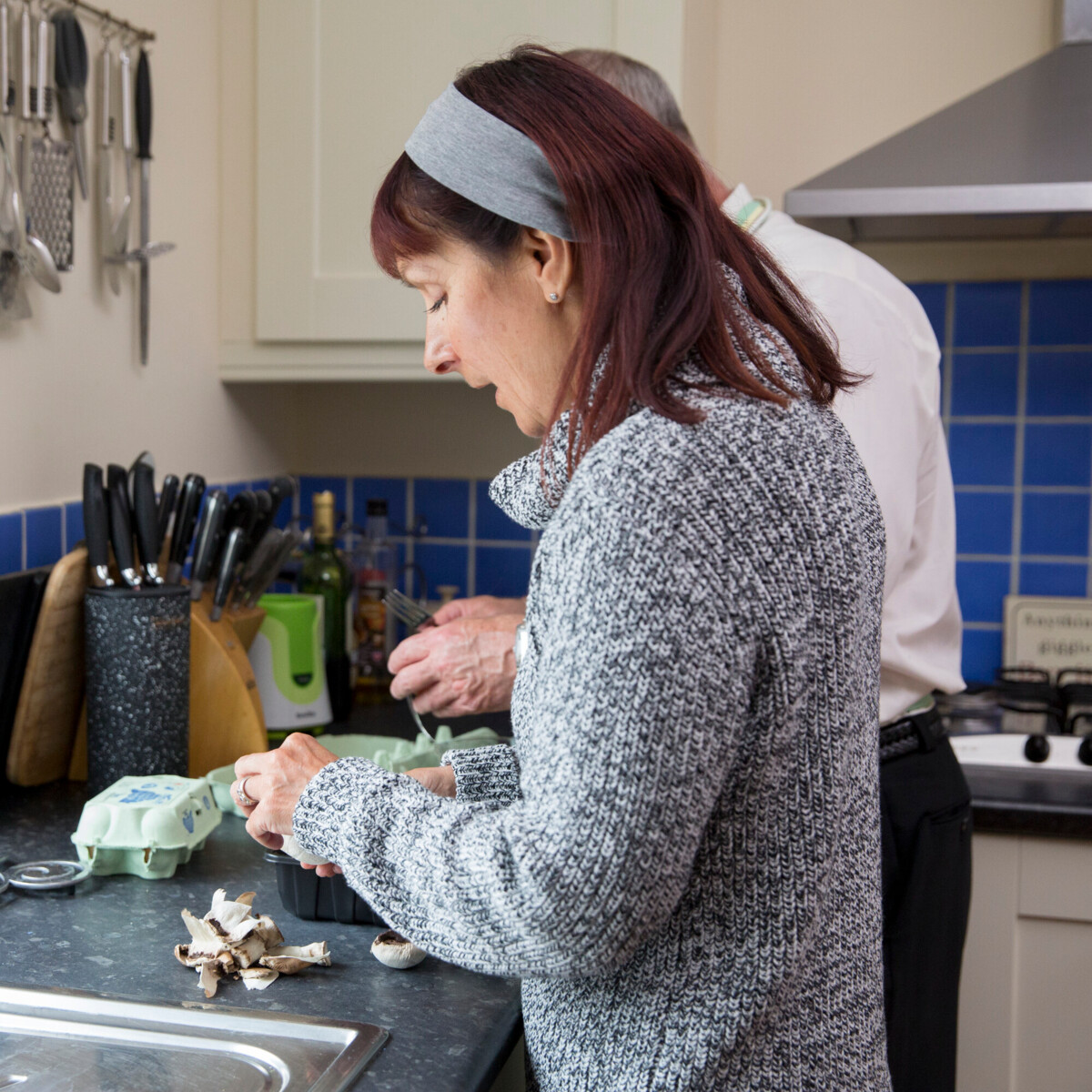Prostate cancer: facts, myths and why getting checked matters
Prostate cancer is the most common cancer in men. Every year, around 55,300 men in the UK are diagnosed with prostate cancer. But many people still feel unsure about what prostate cancer is, what symptoms to look for and when to get checked.
Here, we explain some common myths about prostate cancer
Prostate cancer facts
Anyone with a prostate gland can get prostate cancer.
This includes men, trans (transgender) women and people assigned male at birth.
Doctors do not know exactly what causes of prostate cancer. But some things can increase your risk.
- Age - Your risk of prostate cancer increases from the age of 50. Prostate cancer is uncommon under the age of 50 and more common over the age of 75.
- Ethnicity - Black men are more likely to be diagnosed than other men, and often at a younger age.
- Family history - Your risk can be higher if you have close relatives, such as a father or brother, who have been diagnosed with prostate cancer. Or if you have a family history of breast or ovarian cancer.
Learn more about prostate cancer risk factors.
Myth 1: You will have symptoms if you have prostate cancer
Not always.
Symptoms usually happen when cancer in the prostate is large enough to press on the tube you pee (pass urine) through. This is called the urethra. The prostate can also become enlarged due to a non-cancerous condition called benign prostatic hyperplasia (BPH). BPH can develop as you get older.
The symptoms of benign prostate conditions and prostate cancer are similar. If you have any of these symptoms, it is important to have them checked by your GP:
- needing to pee more often than usual, especially at night
- difficulty peeing – for example, a weak flow or having to strain to start peeing
- feeling like you have not completely emptied your bladder
- an urgent need to pee
- blood in your urine or semen
- pain when peeing or ejaculating – this is rare.
Other symptoms can include: getting or keeping an erection (erectile dysfunction). It can also cause loss of appetite and weight loss.
When prostate cancer spreads, it can spread to the bones. This may cause pain in the bones, such as in the back. Even if it spreads to other parts of the body, it is still prostate cancer.
Myth 2: If I go to my doctor with symptoms, I will have to have a prostate examination
- PSA blood test
- prostate examination (digital rectal examination)
During a digital rectal examination (DRE), your GP will lubricate a gloved finger with gel. Then they gently insert it through the anus and into the rectum to feel [the prostate]. They can feel for any abnormalities. DRE can detect other prostate conditions as well as a possible prostate cancer.
DRE may feel uncomfortable, but it is quick and should not be painful. Tell them if you feel pain.
If you are worried or feel uncomfortable about having a DRE, talk your GP. There are other tests for prostate cancer so they may decide not to do a DRE if you feel this way.
Myth 3: A blood test can diagnose prostate cancer
The PSA test is a blood test. It can be used with other tests to help diagnose prostate cancer.
Prostate-specific antigen (PSA) is a protein made in the prostate. Some PSA leaks into the blood and can be measured in the PSA test.
Prostate cancer often causes a raised level of PSA. But the test is not always reliable. A raised level of PSA does not mean you have prostate cancer. Naturally, as you get older, the level of PSA in the blood slowly rises. Your doctor can tell you what they think the normal level of PSA should be for you.
A raised PSA can also be caused by other things, including urine infections or an enlarged prostate.
Learn more about tests for prostate cancer.
Real stories
We are here to help
If you or someone you know is affected by prostate cancer, you don’t have to face it alone. Support is available for your medical, emotional and everyday needs. You can:
- Find local cancer support services near you with our simple online search.
- Call the Macmillan Support Line for free on 0808 808 00 00, if you have any questions.
- Use our Online Chat
- Visit our Prostate cancer forum to talk with people who have been affected by cancer, share your experience, and ask an expert your questions.
Other organisations who can help
- Maggie’s offers support for people going through hormone therapy, including space to talk about side effects and find ways to manage them.
- Prostate Cancer UK provides information and support to men with prostate cancer and their families. They have offices in London, the Midlands, Scotland, Wales and Northern Ireland. You can call their helpline on 0800 074 8383.
- Cancer Black Care helps ensure Black men and men of colour feel seen, supported and informed.
About our information
This information has been written, revised and edited by Macmillan's Digital Content Editor team. Learn more about our Digital Content Editors and how we produce our cancer information.
Accurate information helps you make informed choices. Look for trustworthy, reliable sources such as Macmillan Cancer Support, the NHS and your own healthcare team.
We have more information on how to find reliable health information online and understanding cancer myths and misinformation.
About the author

Ros Ayres
Read more
-
Blogs 04 Apr 2023In this article we highlight some diet and cancer risk claims you may have seen on TV or in the news and give you more of the facts behind these headlines.
-
Blogs 15 Feb 2023The cost of food and the weekly shop are continuing to rise. Recent events mean the price of certain food items such as salad and fruit have gone up or there's a shortage in the shops. This can make...
-
Blogs 21 Feb 2025We hope this information can help answer some questions if you, or someone you know, is having treatment for cancer during Ramadan.








